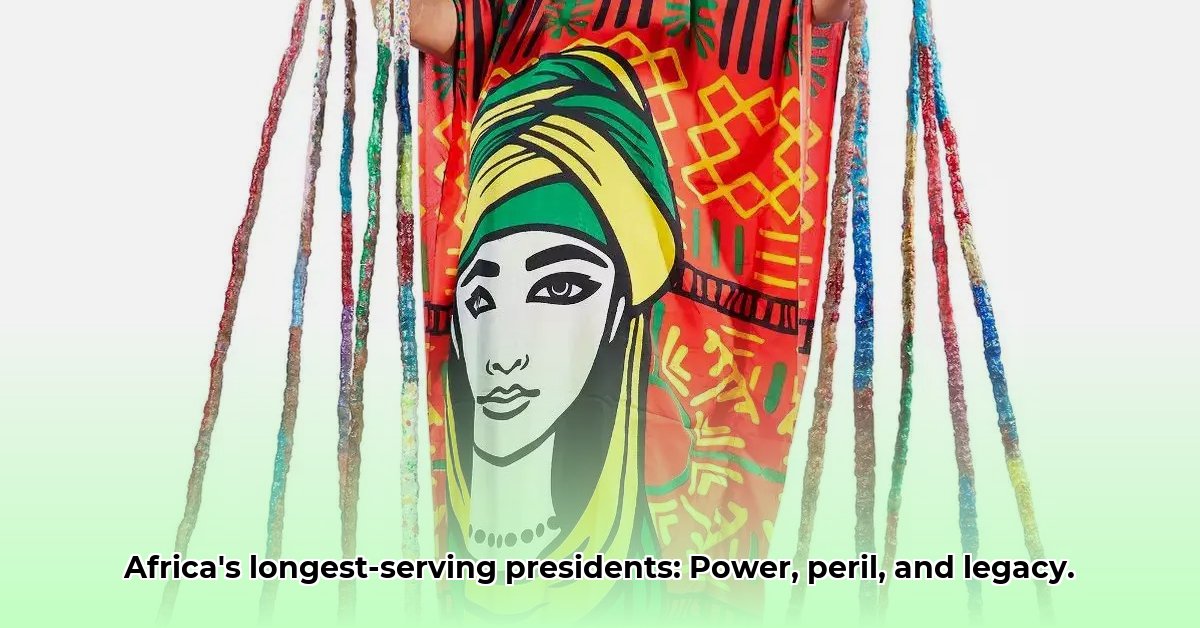
Long-term rule in African nations presents a complex interplay of stability, authoritarianism, and economic consequences. This in-depth analysis examines the factors contributing to extended presidencies, their impacts on governance, human rights, and economic development, and the risks associated with such prolonged tenure. We'll explore strategies for mitigating these risks and promoting sustainable democratic governance across the continent.
How Long Reigns Shape African Nations: A Multifaceted Analysis
The prevalence of long-serving presidents in Africa raises crucial questions about governance, stability, and development. While some argue that extended leadership provides continuity and facilitates long-term planning (potentially boosting economic growth), others highlight the risks of authoritarianism, human rights violations, and stifled economic dynamism. This article delves into the intricate factors that contribute to prolonged presidential terms and their multifaceted consequences.
The Mechanisms of Extended Power: A Closer Look
Several strategies enable African leaders to maintain their grip on power for extended periods. One common tactic is manipulating constitutional provisions, often through amendments that extend term limits or remove them altogether. This effectively circumvents democratic processes and concentrates power in the hands of the incumbent. Another worrying trend is the manipulation of electoral processes, ranging from voter suppression to outright rigging, thereby undermining the democratic legitimacy of the ruling regime. Suppression of dissent, including restricting media freedom and cracking down on opposition voices further secures the position of the longest-serving leaders. The involvement of external actors who provide support to such regimes, even if implicitly, can further hinder any legitimate opposition.
But isn't long-term leadership sometimes beneficial? While some argue it fosters stability and facilitates long-term development planning, this argument often overlooks the greater risks involved.
Economic Realities: A Complex Relationship
The connection between long-term presidencies and economic outcomes is far from straightforward. Proponents argue that such stability can attract foreign investment and promote long-term economic planning. However, evidence suggests that prolonged rule frequently correlates with increased levels of corruption, hindering economic growth and promoting inequality. Resources can be diverted to those in power, rather than being allocated to development projects. This, in turn, can lead to economic stagnation, impacting the livelihoods of ordinary citizens. The absence of competition and accountability often leads to poor economic management and less effective resource allocation.
What is the clear link between economic growth and long presidential terms? Research suggests a complex relationship, often negatively impacted by corruption and a lack of accountability.
The Human Rights Dimension: A Consistent Trend
A concerning pattern often accompanies extended presidential terms: a deterioration in human rights. The absence of checks and balances, coupled with unconstrained power, frequently leads to restrictions on fundamental freedoms, including freedom of speech, assembly, and the press. More severe human rights abuses may also occur, often without accountability. This trend is consistent across various African nations, suggesting a broader systemic problem. The concentration of power leads to abuses of power.
How do long presidencies influence human rights? These often lead to a decline in human rights due to the absence of accountability and unchecked power.
Risk Assessment Matrix: Understanding the Stakes
The table below summarizes the key risks associated with long-serving presidents and their potential impacts:
| Risk Factor | Impact on Governance | Impact on Human Rights | Economic Impact (Potential) | Mitigation Strategies |
|---|---|---|---|---|
| Term Limit Manipulation | Erosion of Democracy | Moderate to High | Often Negative | Constitutional safeguards; strengthened judicial review |
| Suppression of Opposition | Authoritarianism | High | Often Negative | Independent media; protection of free speech and assembly |
| Electoral Fraud | Erosion of Democratic Legitimacy | Moderate | Often Negative | Independent election monitoring; robust electoral systems |
| Patronage Networks | Corruption and Inefficiency | Moderate | Often Negative | Transparency measures; strengthening anti-corruption agencies |
The Role of the International Community: A Balancing Act
The international community plays a significant role in shaping the political landscape of African nations. While providing aid and support can be beneficial, it’s crucial to ensure that such assistance doesn't inadvertently bolster authoritarian regimes. Conditioning aid on democratic reforms and human rights improvements can encourage positive change. Furthermore, targeted sanctions against leaders engaging in human rights abuses or undermining democratic processes can put pressure on them to improve their governance. However, such actions need to be carefully calibrated to avoid unintended negative consequences on the general population.
Charting a Course Towards Sustainable Governance: A Multi-Pronged Approach
Addressing the challenge of long-serving presidents requires a holistic approach. Strengthening democratic institutions, promoting the rule of law, and fostering robust civil society organizations are essential. Investing in education and promoting civic participation are also crucial steps towards building more resilient and accountable governance structures. The international community should continue to engage with African nations, providing support while respecting their sovereignty. This collaborative effort requires a long-term commitment from all stakeholders.
Professor Adebayo Adepoju, Political Science, University of Cape Town, states, "The issue of long-serving presidents isn't simply about individual leaders, but about the systemic weaknesses within many African nations. Strengthening institutions and promoting good governance are essential for breaking this cycle."
This article aims to provide a comprehensive analysis of the complex issue of long-serving presidents in Africa. Further research is crucial to fully understand the nuances and develop effective strategies for fostering sustainable democratic governance across the continent.